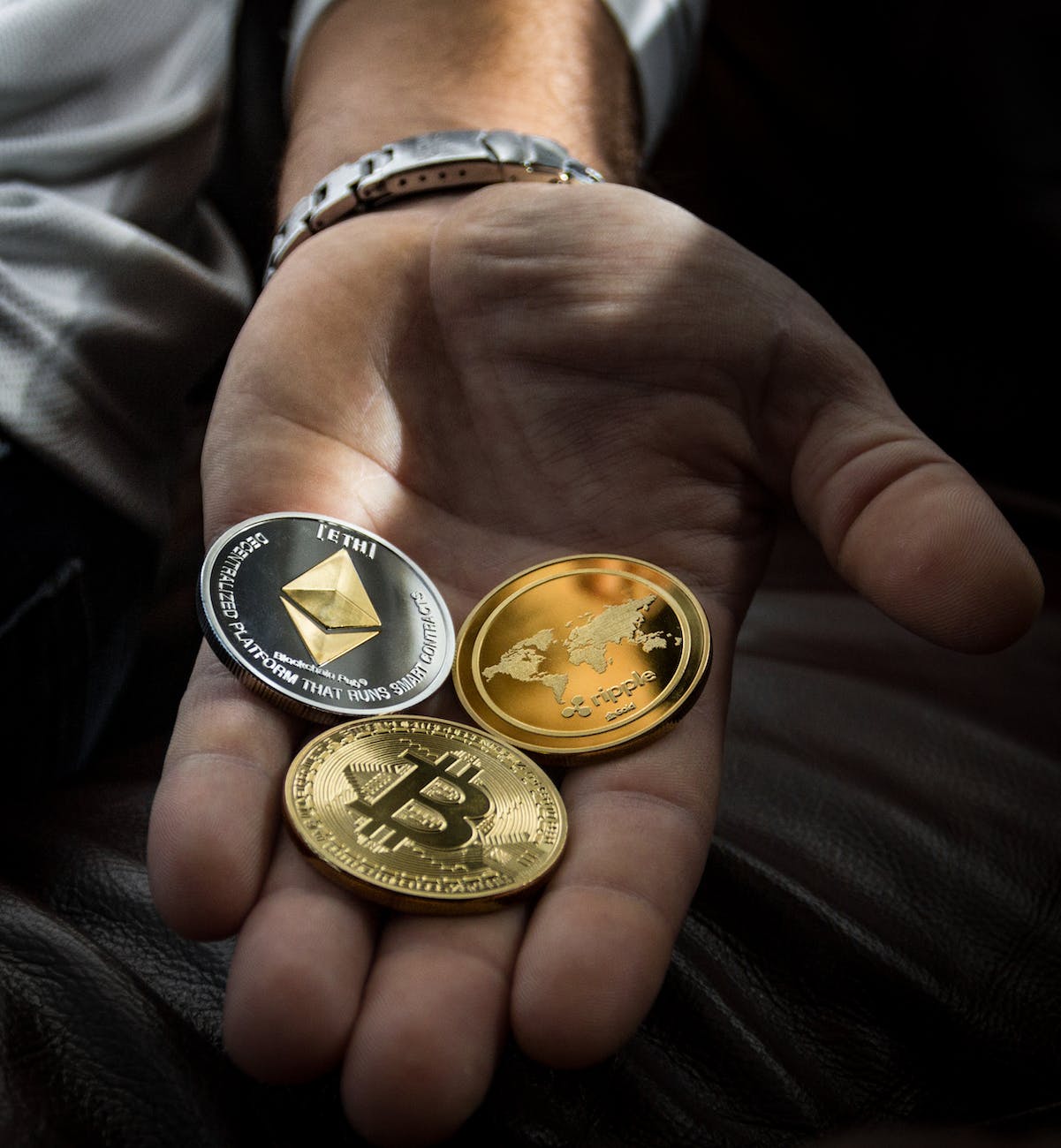This is going to be a long one, even by my standards. (I started it last year and finished it this year.) It’s focused on the relentless advances of the Cult of Prediction on every front. Even when it “loses,” it swallows more media time and attention and eyeballs and obsession… and money. Which makes us Rigorous Imagination multiple-scenario types tear our hair out. Every year, pundits do worse on predicting… and every year, predition mints more and more money.
Let’s start with the crack cocaine version of the Cult of Prediction: gambling.
Gambling has become completely legitimized in the United States, to the extent that Major League Baseball, just over a century past the Black Sox Scandal in which gamblers conspired with players to fix the World Series, now completely embraces gambling on its games. From my friend Bruce Schoenfeld’s 2023 book Game of Edges:
‘THE SCENE AT Wrigley Field would have been inconceivable for nearly the entire history of American professional sports. …The ceremony commemorated the official groundbreaking for a joint venture between the Cubs and DraftKings. The Cubs were building a multi-level addition to Wrigley Field, a National Historic Landmark where the team had been playing baseball since 1916. DraftKings had agreed to transform the space into a 22,000-square-foot betting parlor, paying the team to brand it with the company name and run the bookmaking operation. The Cubs would receive a percentage of the income from food and beverage sales, though not the gambling revenue. “We’re a landlord in this process,” Kenney explained.’
According to RG Statistics, on-line gambling in the United States (online sports betting, online casino, and online lottery) has grown from $2.22 billion in 2018 to an estimated $19.54 billion in 2024, a compound growth rate of 43.7% per year.
Let’s take stock here. Sports began as an activity engaged in by human beings to enhance physical fitness. Theodore Roosevelt saw sports in this light in a 1904 address at Groton School:
‘I believe heartily in physical prowess, in the sports that go to make physical prowess. I believe in them not only because of the amusement and pleasure they bring, but because I think they are useful.’
More recently[1], President John F. Kennedy had this to say about sports:
‘But the stamina and strength which the defense of liberty requires are not the product of a few weeks’ basic training or a month’s conditioning. These only come from bodies which have been conditioned by a lifetime of participation in sports and interest in physical activity. Our struggles against aggressors throughout our history have been won on the playgrounds and corner lots and fields of America. Thus, in a very real and immediate sense, our growing softness, our increasing lack of physical fitness, is a menace to our security.’
So let us take stock:
- First, sports were seen as a method of preparing for war and for the hardships of life, and participation in them was expected of all citizens. (It never really reached universal participation, but at least it was a source of shame if (at least males) did not.)
- Then sports became a live spectator sport, with the vast majority of people in the stands instead of actually playing the game. Thus “fandom” was born – a form of “participation” in which one’s emotional state was linked to the outcome of other people’s exertions.
- Then radio and especially television made it possible to follow sports from one’s couch; one did not even have to go to the effort of moving oneself to the actual arena.
- Now, finally, comes the online betting revolution. One gets one’s endorphin hit not from one’s own participation in sport; nor from live cheering of one’s team; nor even from watching televised (or streamed) games of one’s team; but simply from betting on a team to which one may or may not have any personal emotional attachment.
We have reached a thrice-removed, thrice-abstracted activity boiled down to its most refined, drug-like essence. Playing a sport used to be called a “pastime,” something one did to pass the time and distract oneself in a supposedly useful or at least amusing way. Online sports gambling, by contrast, is very much like Fentanyl.
I don’t mean to idealize “the good old days.” Much of what Teddy Roosevelt and JFK said about national physical fitness being essential to freedom was always bunk. As we got fatter over the decades from 1904 to 1960, the United States became far stronger, not weaker, as a nation.
But we may have reached a tipping point here.
We have become quite accustomed to seeing everything in terms of entertainment and endorphin jolts. In particular, most Americans are so removed from national government that they have come to see it, and the political system of representative democracy that determines who runs it, as just another reality TV show on which they get to vote, like “Dancing With The Stars.”
Is there any doubt that the reality TV star who is about to be re-inaugurated as president benefited greatly from the conversion of politics into entertainment, something closer to professional wrestling than to anything the Founders might have imagined? And that his opponent, the earnest, learned, conventionally accomplished, relatively more boring alternative, lost in great part because she spoke of boring facts, while her opponent grew increasingly (entertainingly) unhinged as Election Day neared?
If the government is just a reality TV show, with as little effect on Americans’ daily lives as “Dancing With the Stars,” the American electorate made the right choice – they will be far more entertained, on a daily basis, by what is about to happen than they would have been if Kamala Harris were the victor.
On the other hand, if our national government actually DOES have an effect on citizens, then they may have made a fatal choice. Because much of the reason the federal government has not had a direct impact on many aspects of citizens’ lives is because there have been hundreds of thousands of experts laboring, far from the limelight, keeping their food and drugs non-poisonous, their jobs non-fatal, their groceries (even during inflation!) extremely inexpensive by world or past standards, their cars and roads physically safe, their air and water clean, and much else. If, as many expect, thousands of critical federal employees will now be pushed out of their jobs in favor of Trump loyalists, people will certainly die as a result of this choice.
What has this to do with gambling?
2024 was the year our overlords decided that betting on presidential elections was perfectly okay.
Over the previous 50 or so years, they had allowed lotteries, casinos (Native American, then others), and other forms of gambling, at first meant to support education or other local governmental functions. Over time, gambling came to be seen as a normal business, a way to promote tourism and the general economy. States and municipalities increasingly desperate for tax revenue and economic growth began to allow more and more forms of gambling. Online sports gambling, once a Las Vegas monopoly, is now legal in a majority of states.
As other career options have dried up, an angry, frustrated generation of young males has arisen, eager to stand out and feel successful. This is increasingly difficult to achieve in a lower-economic-growth context, where jobs are being automated, offshored, and otherwise eliminated. A long-term career with one employer is a near-impossibility; even a long-term career in one industry is difficult. And nowadays even what used to be regarded as a good education is no guarantee of a job. The sources of satisfaction more available to previous generations are drying up, year by year.
And the people eliminating those opportunities are often seen to be the elites of those previous generations, who can’t seem to understand why the success they experienced can’t be replicated easily by the next generation. Young males are far more often living at home with their parents into their 30s; unless those parents are very well-off and generous, their prospect of achieving home ownership themselves is vanishingly low. The economic and political systems are not working for them; so they participate in both at far lower levels, and this breeds alienation and a search for other sources of validation.
Hence their sense of politics as mere spectacle with no ultimate meaning for them, and their willingness to see it as just another source of endorphin hits. Judging from the huge percentage of online sports gamblers who are young (44% of sports gamblers are between the ages of 20 and 34), we are going to be getting more and more of our endorphins not from sports, not from active participation in citizenship, but from literally rigged games (the house always wins, folks). We are creating a society of a few big winners, and a lot of resentful losers.
So it makes sense that on-line election betting markets were legalized just before the election.
‘Kalshi… [is]… the platform which, just five weeks before polling day, won approval in a federal appeals court to legally host election betting in the US for the first time. …The result was “astronomical”, according to its CEO, Tarek Mansour, with more than $1bn worth of trades in a single month. But by the next presidential election, in November 2028, he wants hundreds of billions of dollars worth of trades in a single month.’[2]
And it appears that they got a lot of their participants from sports gambling and the cryptocurrency sphere.
America’s gambling boom, led by the legalization of sports betting, “has increased the number of people who like to throw away their money on things they don’t understand”, said [Thomas] Gruca[, Professor of Marketing at the University of Iowa]. “People think, ‘I picked the Raiders-Jets game, therefore, I can pick a president.’”[3]
Political betting markets tended to show Trump with a far higher chance of winning than Harris; they crowed after Trump’s easy win, and many pundits and “techbros” stated that they were by nature far more reliable than “pundits” (by which I think they might have meant people like Nate Silver). According to the New York Times:
‘Using digital currencies, gamblers on Polymarket have wagered more than $100 million on the outcome of the presidential race, turning the site into the internet betting phenomenon of the 2024 election. …Elon Musk has promoted Polymarket’s odds on X, calling them “more accurate than polls, as actual money is on the line.” …But Mr. Trump’s apparent lead may be an illusion. The odds on Polymarket began favoring him this month after just four accounts… bet more than $30 million on a Trump victory, according to an analysis of transaction records by Chaos Labs, a crypto data provider. Polymarket said on Thursday that all four accounts were controlled by one person….’
When a single person is able to bet $30 million out of a total of “more than $100 million” on a single (large) platform, I would say that, logically, that platform, regardless of its current “accuracy,” is highly likely to be prove unreliable in the future. (Not exactly “the wisdom of crowds.”)
Unfortunately, gambling, unlike most other businesses, does not create a solid basis for societal wealth. It is a sort of parasitic industry that merely takes wealth generated by other industries and redistributes it, while taking a rake-off for itself. Old school historians thought a rise in gambling was one of the warning signs of a society on its way downhill.
That Polymarket story appeared eleven days before the election, about a week before Ann Selzer, a famed pollster in Iowa, who had a track record of “getting it right” when others had failed, issued a poll that showed Kamala Harris three points ahead in that state, which had been thought by almost all to be securely in Trump’s camp. Selzer’s bombshell poll created hope among Democrats that Harris might not only “run the table” of swing states, but also challenge Trump in some “red” states.
In fact, Trump won Iowa by some 13 points. And President-Elect Donald Trump has filed suit against the Des Moines Register, publisher of the poll, and Gannett, its parent corporation. Here’s what the President-Elect, or his lawyers, say in his lawsuit against the previously rather obscure pollster’s media platforms:
This action, which arises under the Iowa Consumer Fraud Act… seeks accountability for brazen election interference …through use of a leaked and manipulated Des Moines Register/Mediacom Iowa Poll conducted by Selzer and S&C, and published by DMR and Gannett in the Des Moines Register on November 2, 2024…. The Harris Poll was no “miss” but rather an attempt to influence the outcome of the 2024 Presidential Election.[4]
I am hell on polls and polling and their effects on elections. But this makes zero sense, which is why I am sure it will (if the Register and Gannett have the stomach to resist the newly powerful Trump administration-in-waiting, as ABC and the Washington Post have not) be heaved out of court quite quickly.
If this was supposed to be an evil plot to help Democrats, shouldn’t it have shown Harris trailing by a small margin, to encourage Democrats to show up and vote? Conversely, if Donald Trump wanted to energize his base and get them out to vote, would he have wanted a poll showing him up 13 points in Iowa? Of course not. Selzer should countersue Trump for whatever fee he claims she was getting from the Democrats; if anything, she did him a big favor with that poll. Trump’s suit seems to be based on the exact sort of “magical thinking” that fuels crypto investments, day-trading by amateur investors, and the book The Secret, which sold the idea that simply wishing could make things come true.
Donald Trump apparently thinks polls can change elections. That ought to concern anyone who thinks our government should be run on a rational basis.
Ironically, presidential election polling (and Nate Silver-type aggregation of polls) was absolutely useless in 2024, in that it arrived at a toss-up election shortly after Kamala Harris became the Democratic candidate, and it never departed from that prediction… which is not really a prediction at all.
But Nate Silver says polling worked just fine for the 2024 presidential election:
‘I’ve been working for years to get people to understand the uncertainties inherent in polling in the form of probabilistic forecasts. The misses in 2016, 2020 and 2024 were within the normal range of error in the long and checkered history of polling — like the Gallup poll that had Thomas Dewey defeating Harry Truman in 1948 or the ones in 1980 that missed Ronald Reagan’s landslide. …There are no great alternatives.’
Actually, there ARE some great alternatives – using rigorously applied imagination to develop multiple scenarios of the outcome, so we can be at least somewhat prepared no matter what happens, instead of insisting we have exact foreknowledge that no one can possibly have.
But scenario planning is not as much fun as a single-point forecast. It’s more work. And it doesn’t appeal to the bro culture that is all about macho posturing and making a big loud prediction and betting on it. Even though Nate in the footnotes, sotto voce, is constantly hedging his bets and telling all those who are listening closely (i.e., virtually no one) that he is all about UNcertainty, not certainty. It’s like the warning labels on cigarette packs. “Disregard the nicotine hit about to be coursing through your veins that studies show is more habit-forming than heroin; this could give you cancer.”
Bayesian forecasts of elections are like cigarettes; betting on elections using crypto, or simply betting on crypto or sports, is more like crack cocaine. Cigarettes and crack provide a jolt of energy and raised metabolism that fools your system into a feeling of wellbeing, via an exaggerated version of the hit that you might get from doing windsprints or consuming an energy drink. Later, of course, comes the hangover, when you’ve lost, as most of you will. The Washington Post reports:
‘Researchers from UCLA and the University of Southern California published a paper this summer…. The findings provide cause for concern: The average credit score in states that legalized sports betting decreased by 0.3 percent — and by one percent, three times the average, in states that allow online sports betting. …Financial institutions in those states responded to the reduced creditworthiness of their consumers by lowering available credit limits, they found. The results were larger for young men from lower-income counties in those states. Meanwhile, states that legalized sports betting saw significant increases in bankruptcy filing rates and debt collections. Debt consolidation loans went up 8 percent by dollar value, and auto loan delinquencies increased 9 percent.’[5]
Seeing everything in life as a betting proposition is terrible for citizens and their communities and nations. It causes an alienation from the substance of the thing bet upon – in sports, an at least potentially real player of a game becomes not just a spectator, but someone who cares about the game in question only in terms of winning or losing that bet, and, as one article says, “a way to… dunk on your friends.” Your ego becomes dependent on some event far away that has nothing to do with you.
In presidential elections, this is even worse, because we citizens are all supposed to be personally engaged, directly, in deciding, not betting on, the outcome, because the outcome affects all of us. A rising generation of alienated, guilt-ridden, bankrupt gambling bros is not a recipe for a healthy political culture.
Election forecasts provide consumers a false feeling that they are engaged with our country’s political system in a meaningful way. In fact, forecasts provide almost none of the actual insight about (much less engagement in) political activity that voters and pundits actually require for our political system of representative democracy to work. Refreshing a polling forecast is a passive activity that has zero positive effect on our politics, and inculcates a dangerous detachment along with a false sense of engagement. Just like a jolt of cocaine can make you feel “alive,” while steadily debilitating you.
Developing multiple scenarios of the future is like a healthy lifestyle of exercise and eating the right stuff and NOT smoking. It’s spinach. It’s not going to provide the immediate endorphin rush that a wager will give someone. But using one’s imagination creatively, in my experience, provides a deeper and longer-lasting positive sense of meaning.
But we scenarioistas are not winning this argument. The “Riverian” cancer is spreading throughout our body politic. Nate Silver is continuing to bash “The Indigo Blob” of “Villagers” who refuse to see everything in terms of Bayesian forecasting and betting. He just can’t seem to crow enough about how Democrats and other “Villagers” met their comeuppance. But he is dead wrong if he thinks that Trump won because Democrats did not apply Bayesian forecasting principles as well as Trump supporters did. Nor would he be correct to assume that an obvious way forward for America is simply to apply Bayes’ Theorem to all questions.
Silver complains that politics is too “messy.” But real politics is ONLY about the messy side of life. If you rule out in advance anything messy, you are ruling out almost all truly strategic questions. The only important stuff is stuff that is ill-defined – that which has not been, and may not be able to be, formulated as a betting proposition. If it were well-defined, it would be cut and dried, and not really an issue.
Silver also complains that the “Indigo Blob” and the Democratic party have not achieved a “coherent” set of policies. There are two huge problems with that.
First, how coherent is the Republican side these days? They are a gaggle of traditional billionaires, techbro billionaires, discontented white working class people, fascist-leaning people, anarchistic anti-establishmentarians, anti-vaxxers, conspiracy theorists, and the like. They are anti-inflation but vote for a candidate who promises only inflationary economic policies. They are for law and order, but just elected a convicted felon. I could go on. Incoherence is hardly a monopoly of the “Village.” Closer to the opposite. (In fact, Elon Musk and Laura Loomer are fighting over this very incoherence right as we speak.)
Second, life is not coherent. A mature approach to politics requires accepting that mutually contradictory values must be balanced, because (e.g.) loyalty and legality, economic equity and economic growth, entrepreneurship and environmental health, etc. etc. can work against each other. Perfect or even near-perfect “coherence” is impossible to achieve in real life.
In fact, I will go further. I do think Trump won partly because the abstracting, alienating, “decoupling” mindset of bettors has come to characterize many voters today, especially among the young male population. It is a cynical, values-free approach to politics, which simply accepts whatever proposition the eyeball-hungry system doles out to them, and bets on it one way or another, as though being on the “winning side” will solve their problems.
And Harris lost partly because she assumed that there was a critical mass of voters who understood that some problems were complicated and unlikely to yield to some bumper-sticker, self-indulgent, black/white approach.
But there’s a twist here. “Elites” are not out of favor worldwide because they are a “Indigo Blob” of mushy-headed liberal arts folk who have not used Nate Silver’s approach to their jobs. They are out of favor because they HAVE used quantitative forecasting, and have overpromised as to the certainty of positive predicted outcomes for people other than themselves, and then, when things did not turn out the way they guaranteed, they simply shrugged and started making more Nate Silveresque predictions that would also never come back to bite them, only other people (a lot of them increasingly angry young males).
It’s telling that Polymarket, the big new presidential betting market, accepts only cryptocurrency for its wagers. The Atlantic Monthly, in a recent article, describes the “three pillars” of the coming “Bro Economy:” “Day-trading, sports betting, and crypto are about to get bigger.” If this is true, the United States may be in real trouble, because each of these “pillars” is almost certainly a guaranteed loser for the vast majority of its participants. Day trading means “meme stocks” – the equity version of a pyramid scheme. Sports betting is a guaranteed winner for the house, which makes it a guaranteed loser for most bettors. And crypto, to date, appears to be yet another Ponzi scheme. The upcoming generation of young males seems to be locked into a cycle that guarantees its own impoverishment, humiliation, and increasing rage.
And Nate Silver is spending a lot more time now, since the election, doling out advice on where to gamble, what luxury restaurants to eat at with one’s winnings, and generally extolling the “Riverian” approach to life, with the occasional excursus into bashing “the Indigo Blob” and its pathetic “Villager” lack of understanding of the refined joys of Bayesian gambling.
It may seem like a departure from his political stuff. But to him, our 248 year-old government is just another thing to bet on.
If it fails, he’ll just change casinos.
[1] “Sport at the New Frontier: The Soft American” in Sports Illustrated Vol. 13, Issue 26 (26 December 1960)
[2] https://www.theguardian.com/us-news/2024/nov/15/online-betting-markets-expansion-after-presidential-election
[3] https://www.theguardian.com/us-news/2024/oct/31/election-betting-presidential-odds-polling
[4] https://www.documentcloud.org/documents/25460086-trumpselzersuit121624/
[5] https://www.washingtonpost.com/opinions/2024/09/14/nfl-sports-gambling-addiction-sportsbooks-credit-scores/



